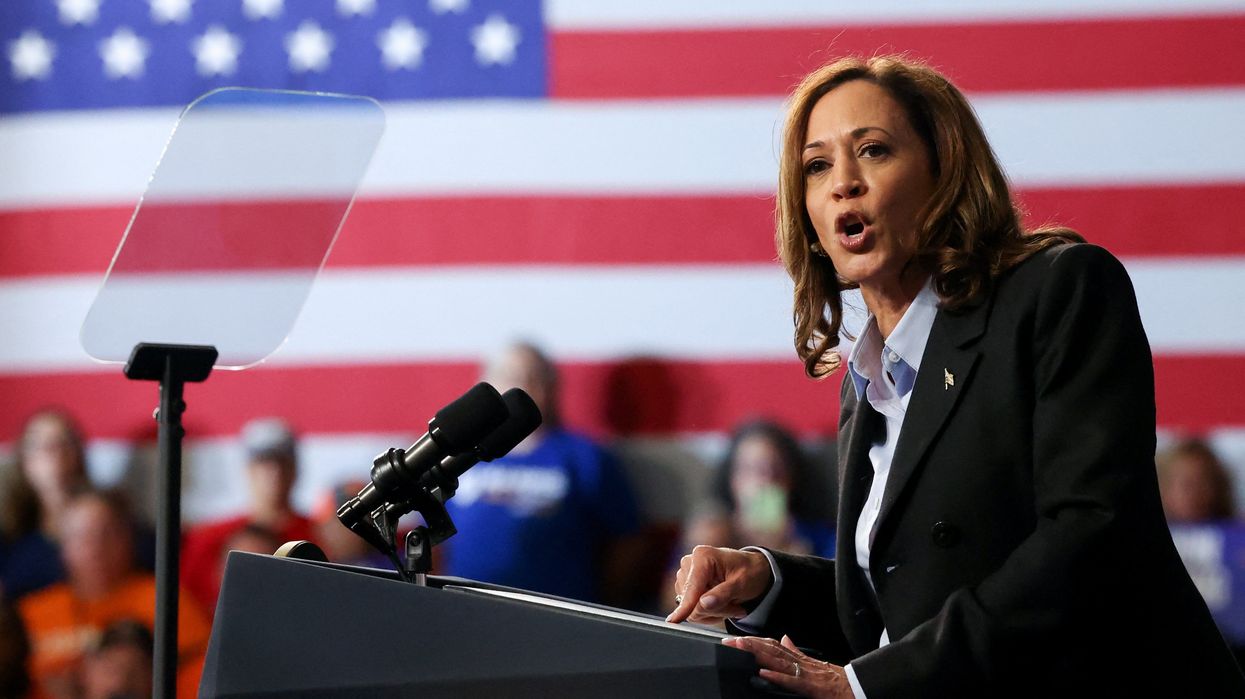Erik De La Garza
October 24, 2024
2020 ELECTION DENIERS

Donald Trump Jr., Donald Trump and Ivanka Trump (AFP)
A right-wing think tank in existence for just about four years is at the core of the planning for a second Donald Trump presidency, according to the New York Times, which reported Thursday that the group already has nearly 300 executive orders ready for Trump should he return to the Oval Office.
Like Project 2025, the America First Policy Institute has developed a plan “for staffing and setting the policy agenda for every federal agency, one that prioritizes loyalty to Mr. Trump and aggressive flexing of executive power from Day 1,” according to the Times.
But, the publication noted, unlike the Heritage Foundation’s Project 2025, the institute's transition plans include "discretion."
“It understood what Heritage didn’t: Transition work is always best kept very quiet,” said Heath Brown, a professor of public policy at John Jay College of Criminal Justice who studies presidential transitions,” according to the Times.
However, the group’s vision “is no less Trumpist: It calls for halting federal funding for Planned Parenthood and for mandatory ultrasounds before abortions, including those carried out with medication. It seeks to make concealed weapons permits reciprocal in all 50 states, increase petroleum production, remove the United States from the Paris Agreement, impose work requirements on Medicaid recipients and establish legally only two genders,” the Times reported.
The publication notes that in one critical area, the institute “goes significantly further” by advocating for the removal of nearly all civil service protections for federal workers “by making them at-will employees – a strategy supporters believe will allow Mr. Trump and his aides to root out career staff members who they believe stood in his way in his first administration.”
The group, which the Times adds “has quickly inserted itself into nearly every corner of Mr. Trump’s political machine,” was founded at the end of 2020 by three wealthy Texans.

Donald Trump Jr., Donald Trump and Ivanka Trump (AFP)
A right-wing think tank in existence for just about four years is at the core of the planning for a second Donald Trump presidency, according to the New York Times, which reported Thursday that the group already has nearly 300 executive orders ready for Trump should he return to the Oval Office.
Like Project 2025, the America First Policy Institute has developed a plan “for staffing and setting the policy agenda for every federal agency, one that prioritizes loyalty to Mr. Trump and aggressive flexing of executive power from Day 1,” according to the Times.
But, the publication noted, unlike the Heritage Foundation’s Project 2025, the institute's transition plans include "discretion."
“It understood what Heritage didn’t: Transition work is always best kept very quiet,” said Heath Brown, a professor of public policy at John Jay College of Criminal Justice who studies presidential transitions,” according to the Times.
However, the group’s vision “is no less Trumpist: It calls for halting federal funding for Planned Parenthood and for mandatory ultrasounds before abortions, including those carried out with medication. It seeks to make concealed weapons permits reciprocal in all 50 states, increase petroleum production, remove the United States from the Paris Agreement, impose work requirements on Medicaid recipients and establish legally only two genders,” the Times reported.
The publication notes that in one critical area, the institute “goes significantly further” by advocating for the removal of nearly all civil service protections for federal workers “by making them at-will employees – a strategy supporters believe will allow Mr. Trump and his aides to root out career staff members who they believe stood in his way in his first administration.”
The group, which the Times adds “has quickly inserted itself into nearly every corner of Mr. Trump’s political machine,” was founded at the end of 2020 by three wealthy Texans.










